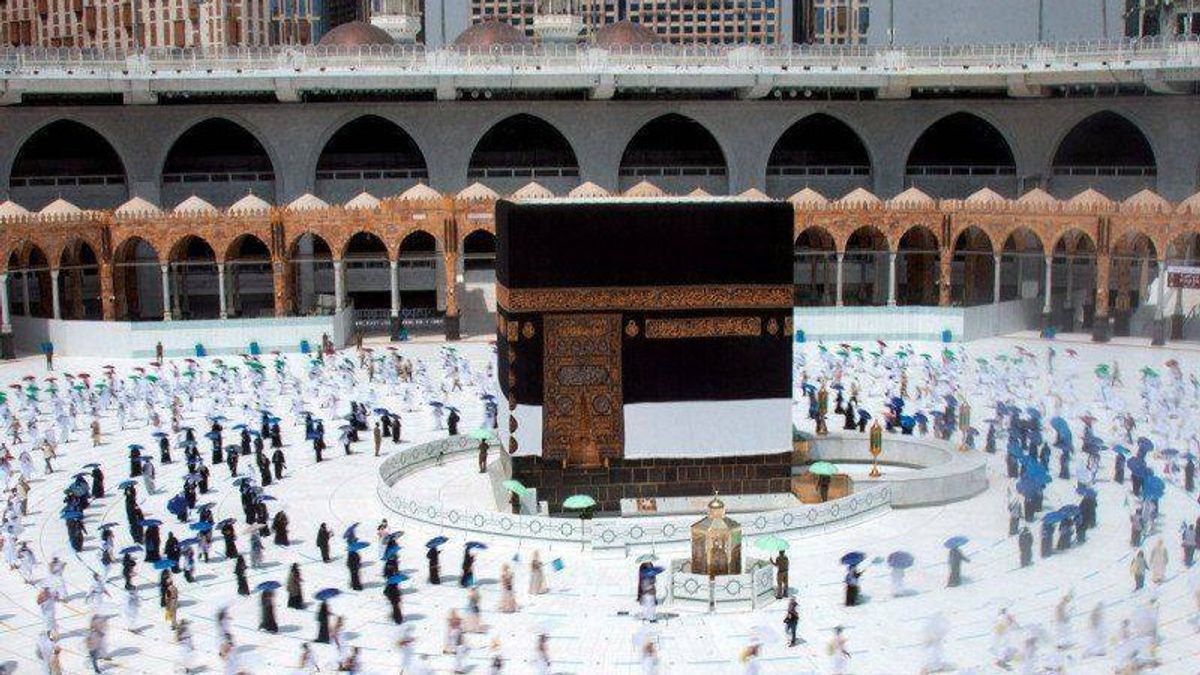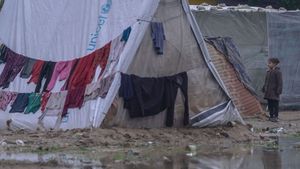JAKARTA - The National Hajj and Umrah Commission (Komnas Hajj) hopes that the Ministry of Religion will prioritize the departure of prospective elderly pilgrims based on the queue portion number, considering that the quota for Indonesian Hajj pilgrims 1444 H/2023 M has returned to normal.
"With this quota, the Ministry of Religion will give greater priorities and portions to prospective elderly pilgrims, because their hopes are getting thinner with the long queues like now," said Komnas Haji and Umrah Chairman Mustolih Siradj in Jakarta, Monday.
Previously, Minister of Religion Yaqut Cholil Qoumas had signed an agreement to organize the 1444 Hijri pilgrimage with the Minister of Hajj and Umrah of Saudi Arabia Taufiq F. Rabiah in Jeddah, Sunday.
During the signing, it was agreed that the Hajj quota for Indonesian pilgrims reached 221,000 people divided into 203,320 regular Hajj pilgrims and 17,680 special Hajj pilgrims. In addition, there are no more age restrictions like the previous year.
"We really appreciate the achievement of Gus Minister Yaqut Cholil Qoumas and his staff who have worked hard for months to get the trust of the King of Saudi Arabia to get a normal quota of 221,000 people, moreover there is no age limit for the congregation," he said.
He hopes that the Ministry of Religion will continue to lobby the Government of Saudi Arabia in order to increase the quota for Indonesia, considering that the average queue has touched decades. In the 2022 hajj season, the quota for Indonesian pilgrims is only 100,510 people who are accompanied by age restrictions.
Meanwhile, during the 2021 and 2020 Hajj seasons, there were no pilgrims departing from the country due to the COVID-19 pandemic. This condition has an impact on the queue for prospective Indonesian pilgrims which is getting longer. With the number of prospective pilgrims registered around 5.5 million people, the average queue nationally reaches 55 years.
"I hope that Gus Men's struggle and his staff will not only be limited to the quota that has been obtained at this time. But continue to approach, lobby, and diplomacy to His Majesty the King of Saudi Arabia in order to get additional quotas," he said.
The lecturer at the Faculty of Sharia and Legal Affairs, Syarif Hidayatullah, also said that because the quota returns to normal, there are a number of challenges and responsibilities that need to be addressed by the Ministry of Religion as the holder of the hajj policy.
First, regarding the preparation of Hajj officers which must be prepared as early as possible because the pilgrims to be dispatched amounted to hundreds of thousands of people.
Second, the preparation of documents and contracts for services for worship in both the country and in the Holy Land, especially regarding accommodation and transportation.
Third, the determination of the cost of organizing Hajj (BPIH) and the Hajj Travel Fee (Bipih) to be immediately discussed by the Ministry of Religion with Commission VIII and the Hajj Administrative Management Agency (BPKH).
"Fourth, the payment of Hajj costs is expected to take place no later than the beginning of Ramadan, and most importantly there is no increase in costs, considering the condition of the people who are currently still not recovering due to the COVID-19 pandemic," he said.
"In fact, the cost of Hajj can be reduced because there are several components of health costs that should no longer exist," he added.
The English, Chinese, Japanese, Arabic, and French versions are automatically generated by the AI. So there may still be inaccuracies in translating, please always see Indonesian as our main language. (system supported by DigitalSiber.id)













